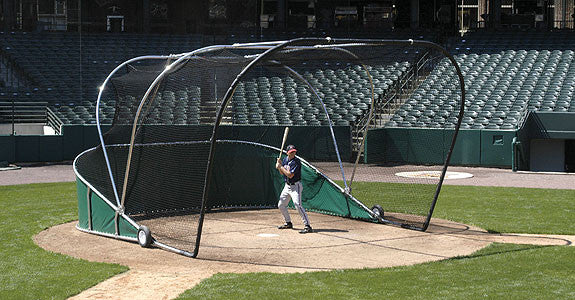Coach
My 10-year-old son has been playing baseball for two years, which in our area equals out to four seasons of play (fall and spring). We play in a "Pony" league and in the Spring the teams are divided into two levels of ability. My son is about to enter his third Spring season and has once again been selected for one of the "lower level" teams. He loves the game, works hard, has heart, listens to the coaches, but is consistently just a mid-level player. All of his friends have moved on to the higher levels of the game. We are considering moving him to a different league in town; we understand the politics will be the same, but I wonder if a new season in a different league will help him learn differently? It feels like at this point he has an unshakeable "rep" and the coaches don't really work with him, they just dump him in the outfield and say "catch the ball" (which he usually does). It's so frustrating to watch your kid get down on himself. I'm really at my wit's end.
Thanks so much.
Stacey J
=====================
Stacey
I can understand the thoughts and even the frustration you have as a parent. But there are certainly a lot of factors that go into a boys success at anything and in this case we are talking about his baseball team and playing baseball.
What we need to do is create a situation that the boy is the dictator of what he wants to do, we as parents sometimes get in the deal and want something different than the boy wants. I will tell you it is hard to get him to tell you what he really wants over what he thinks that you want to hear.
The first question I am going to ask, and please take this as a question not a criticism. How good a player is your boy, I had a son that worked hard and tried but when it really came down to it he could not keep up athletically with the other players and moved over to another sport, and was successful.
If we want to make the boy a better player, then you and he have to do the little extra things outside of games and practice. The throwing drills, fielding drills, hitting drills, all of which you can find on the web. The main thing is that he enjoy it and is asking you to do these things not you tell him to do them. He has to want to get better and spend the time.
As far as moving him, that is a personal decision it can be a chance to start anew with different people and different coaches, but there is a down side to that and it just that new teammates, new coaches, new situation --- he has to socially learn to fit in and earn his place with them.
I can not really tell you yes or no on moving as I don't know the personal interaction he is currently in or what it will be like with a new team. But normally geographic change does not create success, what creates success is work, learning the right way, and wanting to do it right.
Remember it is a game and the boy will be successful with or without the game. You need to support him and help him do what he wants to do. The real trick is to find out what that is and then do it right.
Coach Arnald Swift
Coach
I am a 12 year old player who is always told that I am amazing, my dream is to make it all the way to the pros. I am on a high nationally ranked travel ball team and can play any position. The only bad thing is I don’t have confidence and I don’t have a good arm. Are there any tips you can give me to help not only my arm but also my fielding and confidence.
Jermiah
The first and foremost thing that you have going for you is that you have a goal that says that you're wanting to get the is to play in the majors. And there are certainly thousands of young men that would like to do the same thing and it all comes down to talent with the most important ingredient the ability to work, train, and do the things that are necessary.
Now here's my thought I raise two boys and each year they had a different desire and they worked very hard at it but they went from sport to sport with what they wanted to do with each one of them contains the same element you have to want to do it and you have to want to do it right. As a 12-year-old I can't emphasize enough that you need to enjoy the sports, and the games including baseball because there are so many steps between now and competing at those high levels of play. You need to continue to play on your traveling team, then will come your high school team, and then will come summer ball at the high levels, then college baseball or if you are truly talented minor-league. But and it's a BUT but please enjoy the experience of playing the game whether it be with your friends in the backyard or on your travel team because if you don't enjoy it and you're just making it work it's never going to work you're going to be just there and an average player.
I don't want to anyway sound pessimistic but without knowing you I don't know how much you're willing to put into the game, and I wouldn't worry about it until I got into high school I would just do the normal stuff. It will help your confidence just to play the game and not worry about what's going to happen 10 years from now. As far as some of the mechanical things that you can do to improve your fielding and your arm strength let me give you some suggestions. If you're able to do these on your own then your confidence will automatically improve as you get better.
1. Get onto a long toss program for your arm strength there are several of them out there would even have one on the website called "Thrive On Throwing" that is exceptional and is used by high school, college, and pro teams for this exact purpose. Along with when you get into high school don't be afraid of lifting weights to increase your arm strength but you're not ready for now as a 12-year-old but you are ready for the long toss program.
2. Then as simple as it sounds get a tennis ball and put your glove away and find a wall and bounce the tennis ball against the wall and fielded when it comes off. You will start to develop a lot of hand eye coordination and good and skills. You will find if you're bouncing the ball off the wall you can make it come off at a lot of angles and even create your own games to field and throw.
I offer these two things is great improvements that you can do by yourself, that you can do almost anywhere, and most important two things that you can do every day for 10 or 15 minutes that will show real results after three or four months. There's no magic bullet, working at what you want and most important enjoying what you want. I can tell you right now if you don't want to go do this you think it's a job or chore like your folks making you go and clean your room or carry out the trash then it will not work you have to want to go do it. You have to get up out of the chair and go do it every day because YOU want to.
Best of luck from Coach Arnald Swift, I raise two boys just like yourself and coached hundreds of young athletes and advice is the same always no matter what the sport is, best of luck Jeremy.
Hello Coach
My son is starting little league (after a few years of T-ball) and I am racking my brain during his first year struggles -- which have been hard on him. He's always held a hockey stick left-handed (as I played lefty too), so I had him in T-ball hold the bat/hit left-handed too and did pretty well hitting this way (a good, contact hitter). But unfortunately, he looks woefully over matched hitting lefty in little league. Admittedly, he's a smallish boy, but it seems he has very little bat control. Obviously he's not hitting the pitching machine at all. Since I played ice hockey as a lefty, but played baseball batting righty, I'm wondering if I have him hitting from his wrong side? I've toyed with him trying righty, but since he's never hit that way, he worse off. I just fell like I may have made a mistake and could be doing him a disservice but now I'm not sure what to do? Any thoughts you have on this I'd love to know and would appreciated it greatly. He's incredibly discouraged and I fear he may give up due to all his failures. Thanks...
Dear Dad
I don't think you've done a disservice to your son, is just a matter of maturity and if he's used to playing hockey left-handed then leaving as a left-handed batter and he will learn. I would look first and foremost at equipment I'm not normally a big fan of blaming the equipment but as I've coached my own grandsons T-ball team and coach pitch I found that they have to have a bat that they can control so make sure you have the right length but more importantly the lightweight so that he can control it during the swing. Then you will help him a great deal if you will work with him on soft toss drills, tee work, and easy underhand pitching so that he can swing and make contact and developed a good swing. It's my advice for you to use plastic balls during this time that way you don't chase them and he will not get you hurt by hitting them back up the middle.
Coach Arnald Swift
I am coaching a lower division t-ball team that consists of 4 and 5 yr. olds, and one 6 yr. old. Most of the teams consist of 9 players. The league has decided that since my team has 11 players, they have placed us in the upper division. The ages in the upper division are 5 and 6.
You would think it would make us better, but it has made it harder to get them motivated. Some have never played before. We can’t change the team set-up now, so do you have any helpful pointers? Thanks!
Gerald
Gerald,
I guess I don't truly understand your problem because if you're telling me that you're playing up in the upper division because you have 11 players, not because of the ability then you have one of the dumbest rules and league I ever heard of that doesn't really make any sense. If what you're telling me that you have one or two players that force you up and that upper division because of their age, then that's another story.
I know exactly what you're talking about as far as playing with five and six year olds. Because I'm coaching a team exactly like that with my grandson and my granddaughter and we have to play in a coach pitch 8 and under league. The biggest deal here is that you don't worry and you make a huge deal out of the score not being important. What is important is each accomplishment is what you celebrate and just like hitting the ball and running or picking it up and throwing. Your letter indicates that your worrying about motivation, when in truth just playing to be all the motivation they need not sure hundred percent what you mean by motivation. But little kids like that normally just love to play, let them play in different positions and set goals that you know they're going to accomplish. Just like this past Sunday we had three goals--- for six out of the 12 players to hit the ball, to make one out in the field, and scored one run and we were able to do that because of the way the league is built - inning consists of three outs, seven runs, or batting through the order when we change. We know that were going to accomplish almost every one of these and this week we will have a little different set of goals, but that's what were you tell them are going to try to do and have fun. Then after the game we will make comment immediately away from the parents. So is just you and the coaches and the players talking to each other about what you got accomplished today and how much fun it was. Make no mistake about it all you're doing is creating organized play with this age group you're not creating baseball players you're creating social skills, fun, and organizational aspects that they will need to work with. But winning and losing is the last thing that needs to be even brought up.
The very first year I coached we were eight year olds in a 10 under league we were 0-44, and the thing they remember to this very day is that we went to Pizza Hut and celebrated a rain out. But by the time they were 12 years old we were 2nd in the BABE RUTH WORLD SERIES for 12 and under.
Let me know what you think and hope that I've created some thought process.
Coach Arnald Swift
Hello, my name is Samuel and I coach at the high school level. I’ve been curious to know what exactly what weaknesses does a coach/pitcher look for in opposing batters. If you explain to me. I feel kind of weird asking this but I really want to get better at assessing the batter so I can be an asset to my team and players. I appreciate the time and hope you respond soon. Thanks again.
Sam
=============================
Coach
That is a very interesting question one that every coach every pitcher ask himself on every batter. And if I can give you a good scientific answer that worked all the time then I would be rich because the truth is you can only guess have a good general idea. The first foremost is that you need to see the batter at the plate a couple of times and keep mental record or physical record of him so that you know how he reacted in previous times it back. If you play a team couple of times then it certainly worth keeping track of.
In general the first thing you look for is where his feet are in relationship to the plate, if he backed off the plate that we need to try to throw outside either with our fastball or breaking pitch, he'll be most susceptible to the breaking pitch he backs off the plate. If the crowds it and is very close to the plate then we need to throw fastballs on the inside. The second thing is when you see him swing his hands dip, state level, or do his arms try to raise to get even with the ball. Another thing that you might look at this is back elbow stay tucked in tight against his body like it should or does he really extend his arms. If he extended his arms and kinda sweet set it make sure you stay down and in with the pitches.
The next thing is really to have your pitcher throw strikes on the first pitch there are very few batters that will swing at the very first pitch so it's important that you though the first pitch for strike and get ahead a little bit because then you have so many more choices when the pictures and control. It doesn't matter which pitch you throw or even location on that very first pitch needs to be a strike then we can start to work on the batter.
When the batter swings as he stepped into the plate, does the step away from the plate, does he swing at pitches even whether not strikes that are high, make note if he swings at breaking pitches or doesn't swing, some batters just can't lay off the breaking pitch and some will not even swing at the breaking pitch.
If he's an aggressive batter that swings early in the count or at bad pitches and make sure you mix and change-ups and pitches off the plate. If he is a non-aggressive batter and goes deep into the count then make sure you throw strikes and don't over think this get ahead you know he's going to try to take the picture deep into the count so get ahead of him and don't worry about where the pitches just worry that it's a strike.
To be honest with you the batter is the secondary consideration it's really the picture if he can throw the strikes early in the count not get behind because all batters become good batters when they are ahead in the count.
So to kind of summarize: pay attention to the batter where his feet are, where his feet go when he swings, what type of pitches he swings at and what type of pitches as he take. These are the things that you need to take note of. After you've done this little while you're going to find there are three kinds of batters the really good ones that are just hitters and you're going to have trouble getting out, the really bad ones that are not going to hit the ball very often you're going to get out almost no matter what, the ones that you really need to look at and concentrate on are the ones that you can affect by making sure your pitcher has a good idea of where to throw, what to throw, and when to throw it. Like I said it's not really the batter as much it is the pitcher paying attention to what each individual is doing, and just as important what he has done history is a great teacher. Batters can't change very often from one time to the next.
I don't know if I've helped you are not but at least he gave you something to think about.
Coach Arnald Swift










